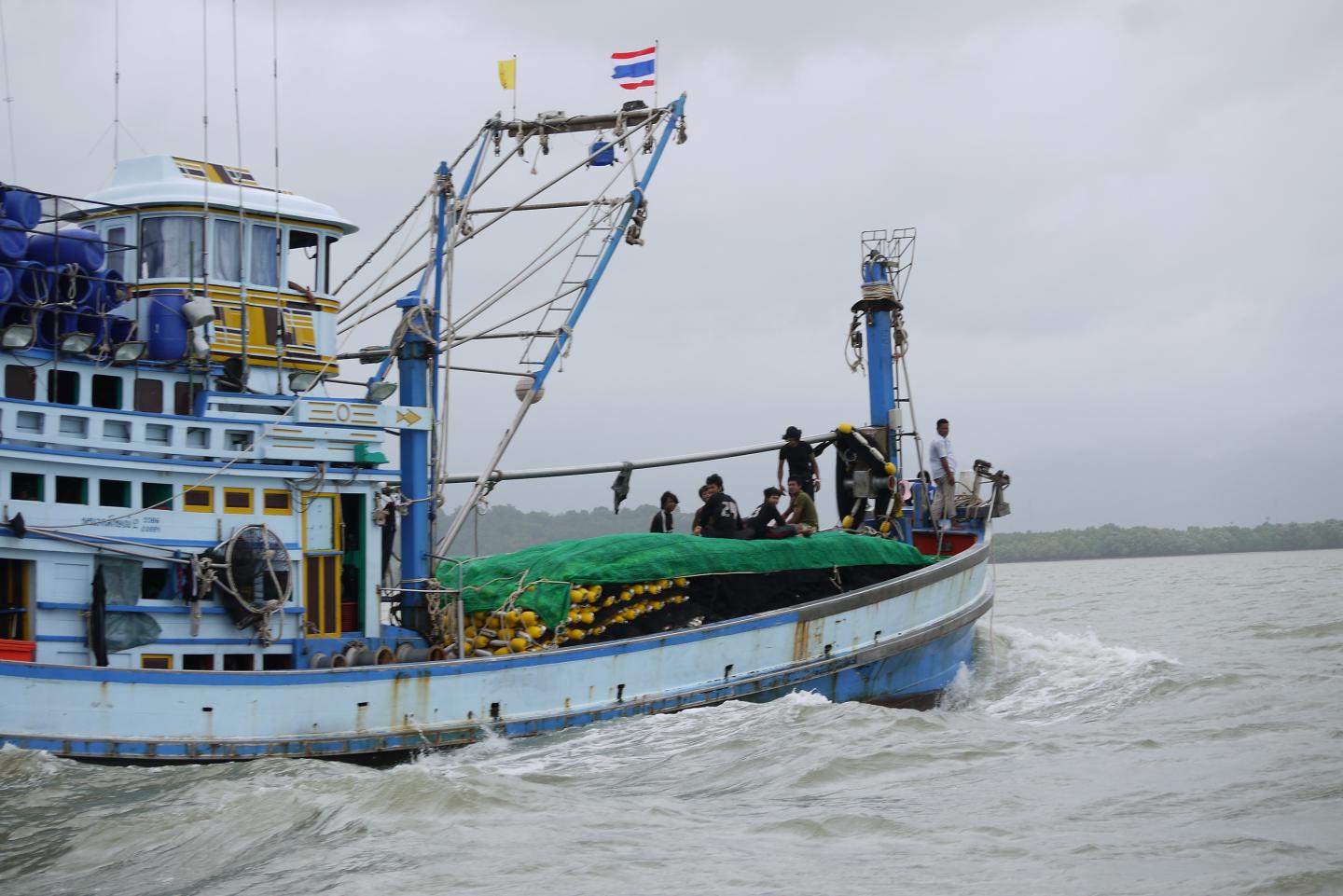
Credit: Nathan Bennett/University of Washington
As the United Nations Oceans Conference convenes in New York, a new paper calls on marine scientists to focus on social issues such as human rights violations in the seafood industry.
Authored by a team from Conservation International, the University of Washington and other organizations, the paper is the first integrated approach to meeting this global challenge and will be presented as part of the UN Oceans Conference and the Seafood Summit, which both take place June 5-9 in New York and Seattle, respectively.
The article, published June 1 in Science, is in direct response to investigative reports by the Associated Press, the Guardian, The New York Times and other media outlets that uncovered glaring human rights violations on fishing vessels. The investigations tracked the widespread use of slave labor in Southeast Asia and its role in bringing seafood to American restaurants and supermarkets, chronicling the plight of fishermen tricked and trapped into working 22-hour days, often without pay and while enduring abuse.
Subsequent investigations have documented the global extent of these abuses in a wide array of countries.
"The scientific community has not kept pace with concerns for social issues in the seafood sector," said lead author Jack Kittinger, Conservation International's senior director for global fisheries and aquaculture. "The purpose of this initiative is to ensure that governments, businesses, and nonprofits are working together to improve human rights, equality and food and livelihood security. This is a holistic and comprehensive approach that establishes a global standard to address these social challenges."
The paper identifies three key principles that together establish a global standard for social responsibility in the seafood sector: protecting human rights, dignity and respecting access to resources; ensuring equality and equitable opportunities to benefit; and improving food and livelihood security.
"This paper stresses that if we are serious about social responsibility in our food systems, we need to go beyond dealing with the 'worst-case' headlines of 'slavery at sea,'" said co-author Edward Allison, a UW professor in the School of Marine and Environmental Affairs.
"We argue that committing to sustainable seafood sourcing and supply is also about ensuring people who work in the food business ? whether as harvesters or processors and packers ? have decent work. It is also about ensuring communities who rely on the sea economically and culturally, particularly coastal indigenous communities, don't have their harvest rights appropriated by powerful outside interests."
More than half of the world's fisheries sector workforce is female, and there are still widespread gender-based disparities in income and working conditions, Allison added.
Seafood is the world's most internationally traded food commodity. By 2030, the oceans will need to supply more than 150 million metric tons of seafood to meet the demands of a growing population. The paper calls on governments, businesses and the scientific community to take measurable steps to ensure seafood is sourced without harm to the environment and people that work in the seafood industry.
"In some places, commercial fishing boats from other parts of the world are virtually robbing local small-scale fishers of the fish that they rely on to make a living and survive. Fisheries are not truly sustainable unless local people are able to benefit from the harvesting of resources," said co-author Nathan Bennett, a postdoctoral researcher at the UW.
###
As part of the initiative, Conservation International has organized a volunteer commitment, calling on governments, NGOs, businesses and other organizations to improve social responsibility in the seafood sector.
Zach Koehn, a doctoral student in aquatic and fishery sciences, is another co-author from the UW.
Media Contact
Michelle Ma
[email protected]
206-543-2580
@UW
http://www.washington.edu/news/
############
Story Source: Materials provided by Scienmag






